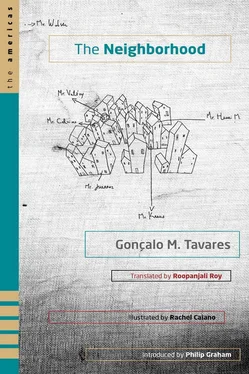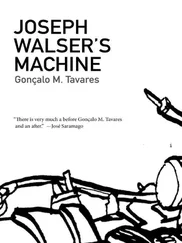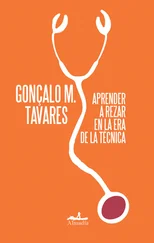“Yes.”
“Instead of decisions wrought by a knee, instead of decisions like that, muscular, physical, noncerebral, and undemocratic decisions, they would now be broad-based decisions.”
“Each football match would thus be a kind of referendum.”
“Yes, but please do note that first the game would have to be played.”
“The matches would be missed.”
“The decisions would be made after the match — and serious individuals would determine which team emerged victorious, irrespective of the goals that were scored, without being influenced by the emotions that could have existed before, after reflecting logically about what really happened.”
“Having passionate matches is not worthy of a century where rationality requires that events be handled differently.”
“Exactly.”
“Rationality and democracy, the importance of each citizen’s opinion and vote: that’s where the future of football lies.”
“It’s only fair.”
“What about the elections to determine who governs the nation?”
“Ah, in this regard, I think we should hold an old-fashioned football match: each Party would choose eleven players and the team that scored the most goals would govern.”
“That seems sensible and rational.”
“Worthy of this century.”
“Yes. Worthy of this century.”
The elections were over and the sweeper had been pushing the ballot slips toward the corner of the hall with his broom for over two hours.
The now useless ballot slips advanced against their will toward the corner as though they were dirty napkins and not papers that had been decisive for a certain nation at a certain time. They were pushed about like trash. Mister Kraus observed the entire spectacle melancholically.
The day after the elections, in the café, at his habitual table, Mister Kraus noted in his notebook:
A posteriori observation 1
In their contacts with the simpler elements of the population, some politicians kiss people on the cheek almost like someone on a wharf bidding farewell to a boat setting sail never to return.
The relationship between politicians and the people
After an animated electoral campaign, the great advantage of any democratic election is that the people finally leave the politicians’ drawing rooms.
It’s a feeling of relief that some elected representatives describe as being similar to the moment in which an intense pain, for some obscure reason, comes to an end.
A posteriori observation 2
When politicians kiss senior citizens, they remind one of the first timid bite of a worm on a body that no longer has the means to flee nor a door from which to exit.
After the Elections

After any election, politicians — irrespective of whether they have won or lost — always have the feeling that the more profound people have all just boarded a train, heading, compactly, for a distant land. This population will come back, on the same train, only in the weeks preceding the next election.
This interval is essential so that the politicians have time to delicately transform hate or indifference into a new genuine passion.
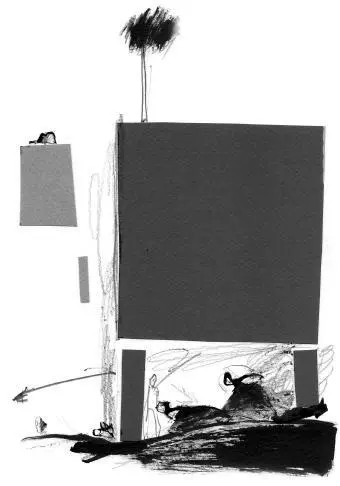
“The words of the winner always seem to be more intelligent,” murmured someone.
“It remains to be seen whether this is due to the quality of the words themselves or the noise that the crowd makes when it gets together, which prevents one from hearing,” responded Mister Kraus.
But the chronicles continued even after the elections.
The Day after the Elections

1
“Well, did you win?!”
“Yes, I won.”
“So, you are therefore the Boss.”
“From this moment onward, exactly: the Boss. And you, what do you do?”
“I eliminate redundancies.”
“Very well.”
“For example, if there were two Bosses I would eliminate one. It’s part of my job description. I even have a dagger.”
“Just as well the result wasn’t a tie.”
“That was lucky! But look, sometimes even when there is only one Boss …”
“And do you work alone?”
“Nobody likes to work alone. In truth, I work with another official who tries to ensure that everything is always explained clearly.”
“Wonderful.”
“These joint efforts result in a balance between a little and a lot. Too many explanations and too few explanations. I don’t know if you are following my drift?”
“I am, and it seems to be sensible.”
“Our work method is as follows: my colleague advances first and explains too much, then I appear and I say: it was unnecessary for my colleague to have explained this, this, and this. That and that and that were excessive.”
“Very well. It’s a strategy.”
2
“I apologize for asking again, but Boss, what is your name?”
“Just call me Boss.”
“With a B?”
“Yes.”
“That’s the same name as the last Boss.”
“We are all from the same country. Hence the coincidence.”
“Hence the B.”
“Exactly.”
“In my opinion, it’s very wise. It prevents mistakes with names.”
“That’s one of the advantages.”
“However, there is the question of the small b or the big B. We have one Boss with a big B, as of yesterday: Your Excellency. Bosses with a small b, we have one for every ten square meters.”
“Is that a lot?”
“This pavilion alone has three hundred square meters, so Boss, with a big B, you can do the math and see how many bosses we have with a small b.”
“If we have a boss with a small b for every ten square meters, in three hundred square meters we have …”
“We have …?”
“Thirty bosses with a small b!”
“Exactly, thirty. Isn’t that a crazy number?”
“No: three hundred divided by ten: thirty. What craziness are you talking about?”
“I was talking of the underlying concept. Look, even I, who obey almost everybody, am the boss, with a small b, of two or three wretches. Only the last one on the list is not a boss.”
“It seems unfair.”
“So, we have a new Boss?!”
It was Mister Henri, already in a conversational state par excellence.
Without slowing his pace, Mister Kraus merely responded, “At first glance, at first glance!”
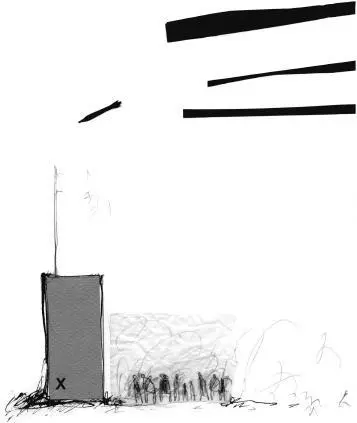
The Return

1
The Assistants were radiant: it had already been weeks since they had assisted anyone, but now all that desire to Assist could once again be applied.
Many of them had tried during the period when the Boss had been absent, but it was as though the objects of their assistance seemed to flee from them. Some, the astute ones, did actually flee. It was quite visible: they ran; they placed one foot after the other and disappeared from sight: it was a fact, those who needed their services fled when the Assistants approached them. Elderly individuals, who had difficulties understanding and moving, even they, with a sudden and surprising burst of vitality, fled. They escaped, they dived into narrow dark alleys — little old men and little old ladies, that’s who we are talking about — and, suddenly, they disappeared, nobody saw them again. And the Assistants had no work to do. They only wanted to assist.
Читать дальше
